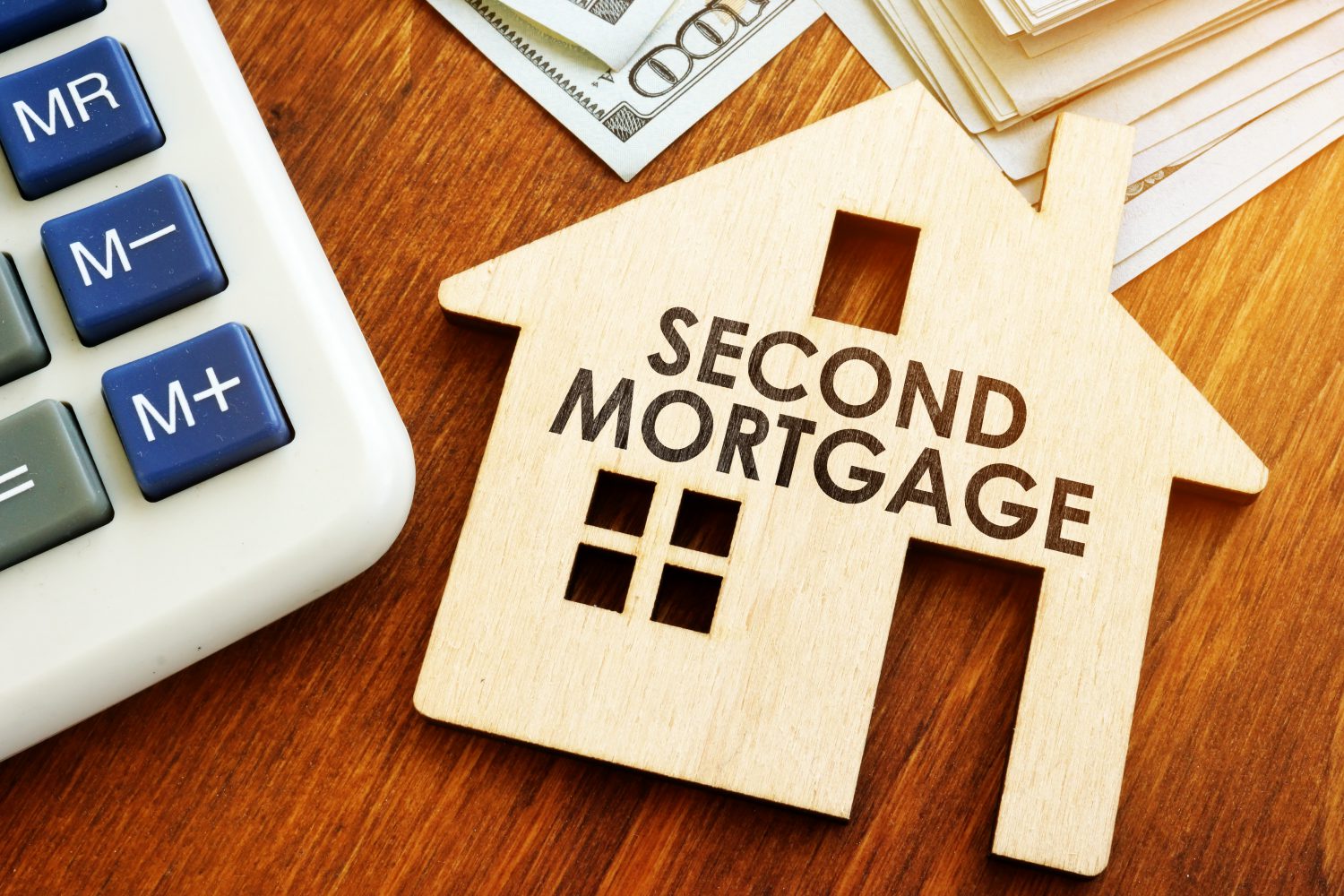Despite more than two million people in Canada with second mortgages, not many fully understand how second mortgages work. This article aims to answer the reasons people get them, and how to obtain them. We’ll also help you learn the advantages and disadvantages of second mortgages, and hopefully, provide information to help you make an informed financial decision.
What is a second mortgage?
The first loan taken by homeowners to purchase a house is called a primary mortgage. A second loan acquired for the same property is called a second mortgage.
A second mortgage is granted even when the primary mortgage has yet to be fully paid. The loanable amount from the second mortgage is based on the equity of the house bought through the primary mortgage. Equity is the value of your home minus any mortgage debt and liens. Equity is calculated by subtracting the value of your home from the remaining balance left from your primary mortgage.
For example, if the value of your home is $300,000, and you still have $250,000 remaining on your mortgage, the equity in your home is $50,000. The higher your equity, the higher are your chances of getting a second mortgage. Generally, the second mortgage loan amount is 80% of the appraised value of your home.
The amount is usually based on the equity of your home. You may be allowed to borrow a specific amount against it and utilize the money for a critical expense. Your home equity increases when you make regular mortgage payments and if your house’s value increases. Usually, loans are granted when they are secured by the equity of your home.
If you are qualified to receive a second mortgage, does that mean you should get one?
Related article: How to get a second mortgage in Toronto (Ontario)?
Common reasons to get a second mortgage
Some common reasons for getting a second mortgage in Toronto include:
- To use as an emergency fund
- To take advantage of an investment opportunity
- To pay for your child’s tuition
- To pay off high-interest credit card debt
- To pay for home renovations, thereby adding to a house’s financial value
- To pay for medical expenses
- Debt consolidation
- To purchase a car
- To pay for wedding expenses
- To pay down tax arrears and mortgage
Related article: Looking for a deal? Now’s the time!

What are the benefits of getting a second mortgage in Toronto?
Acquiring a second mortgage offers many potential advantages. Typically a second loan is used to cover an immediate expense. Such loans are usually prized for its high amount due to it being secured by your home. Benefits of getting a second mortgage include:
- Low-interest rate compared to rates offered by credit cards/car lease payments/unsecured credit lines
- Improved credit score, especially when the second loan is used to consolidate debt
- More flexible payment terms
- You may have the option to only pay the interest, making monthly payments lower
- Paying the Canadian Mortgage and Housing Corporation (CMHC) fees can be avoided
- You can use the money from the second mortgage to invest in a rental property. Doing so converts the loan interest to a tax deduction
What are the disadvantages of a second mortgage?
- Losing your home is a risk with a second mortgage. Since your house was used as collateral, the lender could repossess it if you default on paying your loan
- Penalties occur with all types of loans, and a second mortgage is no exception. Prepare to be penalized for missed or late payments. If possible, find a second mortgage with little, or at least reasonable, penalties
- Expect additional fees such as appraisal costs, origination fees, and credit check fees
- Amortisations could extend to more than two decades. However, depending on a loan’s structure, repayment might be required within a year.
- Interest rates are higher compared to a primary mortgage
How to know if you qualify for a second mortgage
Similar to other loans, qualifying for a second mortgage requires you to meet specific criteria set by lenders. The objective of these standards is to establish you like a risk-free borrower who will be able to make timely payments. Lenders look out for the following attributes with potential second mortgage borrowers:
- A decent credit score – Qualifying for a second mortgage requires potential borrowers to have a credit score of at least 680. When the credit score is higher, the interest rate of the loan will be lower
- Sufficient home equity- Lenders look out for borrowers with a minimum of 20% home equity. Lenders value this specific percentage in order for their loan-to-value ratios to remain low. Doing so helps lenders avoid risks during instances when there is a sudden interest rate increase or an income drop.
- Adequate income – Lenders want to make sure you will be able to afford to make loan payments on your mortgage. Naturally, they will check your financial status.
Related article: How to Boost a Low Credit Score (and Qualify for a Mortgage) in Ontario?
What are the types of second mortgages?
The two main types of second mortgages are a home equity line of credit (HELOC), and a home equity loan. As their names suggest, both permit you to borrow against your home equity.
Structurally, acquiring a HELOC is the same as acquiring a consumer line of credit. You have the freedom to withdraw as much or as little as you want as long as it’s within your approved limit. Similar to a credit card, interest is charged only on the money you withdraw; no interest is charged on your approved full credit limit. If you are able to pay back the amount you borrowed, you can easily borrow again, provided you are within your credit limit and you pay on time. It differs from a credit card is that a HELOC permits you to borrow a specific amount against your home’s equity. It uses your home as collateral.
A home equity loan offers borrowers a lump sum amount of money with a fixed interest rate. Its rate of interest is usually higher than your primary mortgage interest rate. Unlike a HELOC, where interest is charged only on the specific amount withdrawn, the interest charged in a home equity loan is for the total loan amount. However, its rate is fixed, thus making it easier for you to plan payments consistently until the entire amount is repaid.
Most borrowers prefer a home equity loan due to the lump sum of cash borrowers receive upfront. Similar to the HELOC, the collateral used for a home equity loan is your home.
Related article: New Brokerage Splitting Listing Fees for Buyer and Seller Savings
Should you or should you not get a second mortgage?
In summary, before you commit to getting a second mortgage, ask yourself if you can afford one. Getting a second mortgage is tempting. It gives you access to a pool of money you might not be able to acquire otherwise. But you want to be cautious that you are not setting yourself up for a financial trap. It is advisable to stay prudent when deciding to get a second mortgage.
Before applying for one, it is best to reduce any of your existing debt. It will not serve your interest to pay for numerous loans. Doing so will exhaust you – financially, physically, and emotionally. As much as possible, spend responsibly and budget wisely.
Getting a second mortgage means you are taking on another debt. It is an add-on to the primary mortgage you are already paying. Are you able to make payments for both without feeling overwhelmed? If you answer ‘yes’ because you will be using the funds to further build your wealth, you’re likely making the right decision. But if you plan to use the second mortgage simply to have spending money, I recommend that you think twice.
I suggest you live for two to three months within a budget that incorporates payment for a second mortgage. Doing so is one way to know if you can financially survive while paying for a second mortgage. Your ability to live in relative comfort within that time is a realistic gauge that you can afford one. Remember: Your inability to make regular payments could lead to the foreclosure of your home.
Consider too if there is another way to acquire funds besides getting a second mortgage. If you are looking to renovate your home, you can hold it off until you have saved sufficiently to afford its cost. A slight delay in your plans could also mean saving yourself from the risk of losing your house if in case you fail to pay.
If you finally decide to get a second mortgage, compare offers from various lenders. Take note of the differences in interest rates. Determine the specific terms of the loan. You can opt to apply via your current mortgage lender or seek the services of a broker.
Related article: How to choose the right real estate agent when buying a home in Toronto?
Essentially, a second mortgage if you adding more debt to your current debt. Before signing up for one, make sure you know the advantages and disadvantages. You also need to be prepared to face the risks and consequences brought by having a second loan. Keep yourself knowledgeable on the details of acquiring a second mortgage. Also, be very aware of your financial capabilities and limitations. Doing so will help you make a decision that is best for you and your loved ones’ financial survival.
Related article: How to invest wisely in Toronto’s real estate?
- The Impact of Interest Rate Cuts on Toronto’s Housing Affordability - April 23, 2025
- Bank of Canada Holds Interest Rate Steady Amid Tariff Uncertainty - April 19, 2025
- The Impact of Interest Rate Cuts on Toronto’s Housing Affordability - April 11, 2025




